
A while ago it occurred to me that when humans become extinct, unless aliens arrive on Earth to dig up and appreciate our music, art and writing, it will become meaningless. The animals that survive our presence on this planet will never read our books, sing our songs or admire our creations, even though vines may festoon our sculptures and birds nest among their twining stems.
Culture, I thought, is unique to us. Then, for some reason, I remembered those weird rabbits.
What rabbits?
Near the end of Part I of the late Richard Adams’s wonderful book, Watership Down, the band of homeless rabbits comes across a warren whose inhabitants display peculiar behaviours. They practice complicated etiquette, recite poetry and make things they call Shapes by pushing pebbles into burrow walls. It turns out this warren is managed by a nearby farmer. He protects it from predators and delivers food at regular intervals. And he snares rabbits for the pot. Their knowledge of certain death by “the shining wire” impels these rabbits to create high art.
Those weird rabbits are a lot like us humans.
All right, Adams’s rabbits are human analogues, even though he did a lot of research into rabbit behaviour in order to represent their animal lives correctly. As readers, when we identify with Hazel and Fiver and the others, we focus on their human-like aspects. They may be likened to members of a hunting and gathering culture, while the rabbits of the “managed” warren are similar to humans caught in a complex civilization, (i.e., us). Their cultures are completely different.
At some point in our evolution, we developed the capability to think abstractly and see ourselves as entities separate from nature, entities whose lives end inevitably in death. Like those peculiar rabbits, we acquired knowledge of the shining wire. This profound change happened at least 100,000 years ago, as suggested by the earliest known evidence of intentional burial and funeral rituals. I’m betting that storytelling began about the same time.
Culture is our way of explain nature to ourselves, our attempt to bridge the gap between us and its inexorable indifference. Telling stories was all we could do when the group gathered around the fire numbered one person less than the night before.
In that episode from Watership Down, both groups of rabbits tell stories. One of the “managed” rabbits recites a poem that is sophisticated and abstract. Though never referring directly to death by snare, it is nevertheless full of doomed resignation. One of the wandering rabbits tells a tale of a rabbit folk-hero, a trickster who never fails to come up with plans to foil the thousand enemies of rabbits. Their hosts express polite disdain, calling the story old-fashioned, and making the wandering rabbits feel awkward and naïve. Except for Fiver. He’s the seer and prophet of the group, and discerns the horror behind the sophistication.
Storytellers and writers distil the essence of their cultures and reflect it back to their people, polishing its ever-changing face and keeping it bright. Some say there are only seven basic stories – the quest, voyage and return, overcoming the monster, rags to riches, comedy, tragedy and rebirth (transformation). Being of the lumper persuasion, I’m tempted to reduce them further – can’t comedy figure in any of them, even in tragedy? And quests often involve voyages, monsters and transformation.
Whatever story we tell, for whatever slice of humanity (genre readers, ethnic or age groups, etc.), as storytellers and writers we are maintaining something fundamental to our humanity. Whether reading aloud in a bookstore or library, relating an anecdote around a campfire, or silently absorbing text from a page in our favourite chair, we doomed (but ever hopeful) creatures can reach backwards to our ancestors or look forward to our distant descendants.
Those rabbits. This would have been easier to write if it wasn’t inspired by an author’s clever grafting of human emotions onto a group of animals – animals not usually considered heroic, at that. But it did make me return to a book I rank among my all-time favourites: Watership Down by Richard Adams. If you haven’t had the pleasure, go find a copy and read it. You’ll be glad.
Find and follow Audrey
Amazon.com Amazon.co.uk Amazon.ca
Apple.com Barnes and Noble.com Smashwords Goodreads
Information about Audrey Driscoll’s writing, and her opinions on a variety of topics, including her other avocation of gardening, may be found by visiting her blog at: www.audreydriscoll.com
 About the author
About the author
Audrey Driscoll grew up reading books, and found she was as interested in how stories were constructed as in how they turned out. She worked out scenes and bits of dialogue in her head, and made her friends act out little dramas based on her favourite book at the time – Rudyard Kipling’s Jungle Book.
With that background, it was inevitable she would become a writer. It just took a while. After establishing a career as a librarian – first at the University of Saskatchewan and then at the Greater Victoria Public Library in British Columbia – Audrey had a meaningful encounter with H.P. Lovecraft’s character Herbert West.
Audrey was fascinated by HPL’s corpse-reanimating physician and his friend the nameless narrator. The result was The Friendship of Mortals, which was followed by three more novels to form the Herbert West Series. Self-publishing became respectable and relatively easy just in time to rescue Audrey from the sad fate of the Unpublished Writer.
Audrey has recently published several short stories as supplements to the Herbert West Series, and is currently at work on a sequel.
Find Audrey’s books at:
Amazon.com Amazon.co.uk Amazon.ca
Apple.com Barnes and Noble.com Smashwords
Volume One of the Herbert West series
Herbert West can revivify the dead – after a fashion. Miskatonic University Librarian Charles Milburn agrees to help him, compromising his principles and his romance with Alma Halsey, daughter of the Dean of Medicine. West’s experiments become increasingly risky, but when he prepares to cross the ultimate border, only Charles can save his life – if his conscience lets him.
More Details: Arkham, Massachusetts, 1910. Librarian Charles Milburn takes up a position as cataloguer in the Library of Miskatonic University. He becomes the keeper of the Necronomicon, an ancient book of secret lore kept in the Library’s vault.
Herbert West, a medical student with a dubious reputation, requests access to the fabled book, and Charles grants it despite his misgivings. So begins a friendship that takes Charles far from the rules of cataloguing and the conventions familiar to an honest young man from a good Boston family.
Herbert West can restore the dead to life, he says, and he persuades Charles to be his assistant. Their experiments, carried out in secret by night, in improvised laboratories and by stealth in the hospital attached to the university, achieve success – of a sort. Charles finds himself caught between the demands of his fascinating friend and his growing attraction to Alma Halsey, daughter of the Dean of Medicine.
In 1914, as war begins in Europe, Charles is both relieved and distressed to say goodbye to West as he sails away to France to serve as a medical officer. Over the next four years, West’s letters reveal a mixture of cynicism and black humour that hint at – what? Charles doesn’t know and would rather not guess. Engrossed in cataloguing the books of an eccentric professor, he develops an interest in alchemy as a way to transform the base into the excellent.
West returns from the War to a career as a surgeon utilizing techniques perfected on the maimed, dying …and dead? Lonely and self-doubting despite his professional success, Charles can’t bring himself to abandon West as his reputation grows and darkens. Rumours of illicit experiments overshadow West’s spectacular public successes, and he begins to crack under attacks from colleagues and threats from his gangster brothers. Beleaguered on all sides and under threat of investigation, West appeals to Charles for help. Charles is sympathetic until West reveals the perilous nature of his plan.
Vacillating between horror and hope and haunted by West’s misdeeds, Charles must draw on his knowledge of alchemy and his tottering faith in powers beyond himself if he is to save his friend’s life. Only his conscience stands in the way.




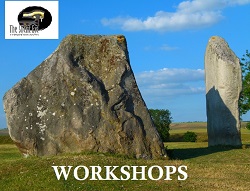

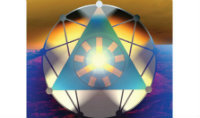

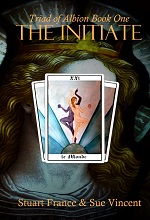


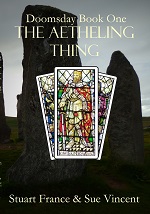
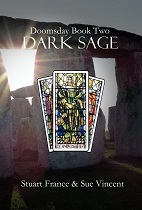
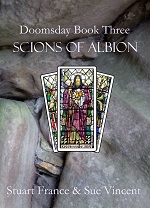







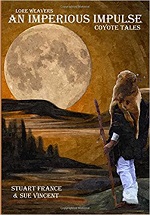


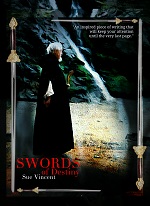

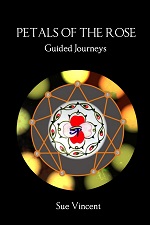


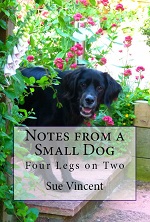



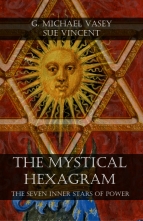

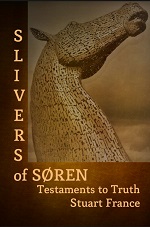


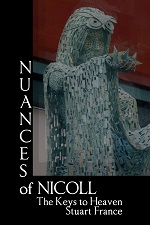


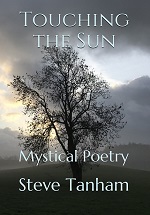

I Loved the book when I read it so long ago. I’m thinking too of those things they put inside space capsules- like time capsules reaching out into the universe to let other beings know we were here, and we were artists! Something very poignant about it all even though truly we are the most miserable of beings when you think of it lol!
Thank you for this thought provoking post and I will check out the books which sound marvelous.
LikeLiked by 1 person
I wonder if other species do create art… but we, being ‘alien’ beings, are too blind to see it.
LikeLiked by 2 people
And whether we would consider it to be art. Bowerbirds’ creations, for example. 🙂
LikeLiked by 1 person
Indeed, I was thinking of nests 🙂
LikeLiked by 2 people
It would be very interesting to know how our civilizations are viewed by people — or other entities — in the distant future. Thank you for the comment!
LikeLiked by 2 people
yw!!
LikeLiked by 2 people
It’s years since I read Watership Down – you make me want to re-read it. Thought provoking post.
LikeLiked by 1 person
Funnily enough, I’ve been thinking about the book a fair bit recently.
LikeLiked by 2 people
It’s a good example of a number of those basic story plots combined, actually — quest, struggle, voyage and return, even a bit of tragedy and comedy. Thanks for hosting my post, Sue, and for presenting me so well!
LikeLiked by 1 person
It was a pleasure to have you over, Audrey…and with such a good post too.
LikeLiked by 1 person
As is The Bees, by Laline Paul. An amazing novel. I like bees but never thought I’d be so caught up in the intrigues within the hive.
LikeLiked by 2 people
The Duncton Wood books too…
LikeLiked by 1 person
Sounds interesting; I’ll have to look it up.
LikeLiked by 2 people
I loved it – couldn’t put it down.
LikeLiked by 2 people
Great post, Audrey. One of my favorite books ever, is Watership Down. As you mentioned, the point where they meet the other, semi-captive rabbits and Fiver’s inability to understand the differences in their cultural expression is illuminating.
LikeLiked by 2 people
The poem recited by one of the atypical rabbits is beautiful and haunting. The book is one I have re-read several times.
LikeLiked by 1 person
Reblogged this on Audrey Driscoll's Blog and commented:
Sue Vincent invited me to contribute a post to her estimable blog, so I wrote this.
LikeLike
Reblogged this on Don Massenzio's Blog and commented:
Check out this guest post by author Audrey Driscoll from Sue Vincent’s Daily Echo blog
LikeLiked by 2 people
Thanks for the reblog, Don!
LikeLiked by 2 people
You’re welcome
LikeLiked by 2 people
I read Watership Down many years ago and loved it. Thanks for reminding me of it, and for your thoughtful observations.
LikeLiked by 2 people
And thanks to you for your comment!
LikeLiked by 1 person